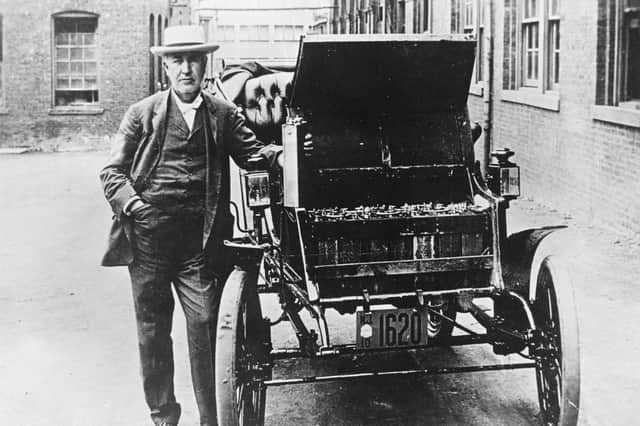Electric car revolution is here. How a 19th century Scottish inventor and a Swedish scientist could have helped world avoid climate change – Scotsman comment


“Electric vehicles: the revolution is finally here,” proclaimed a headline in the Financial Times, which reported one in three cars sold across Europe between April and June were hybrids or electric.
Meanwhile, Volvo announced its entire range will be electric by 2030, with chief executive Hakan Samuelsson saying: “We’re going to be the fastest in the business to transform to electrification.” The race, it seems, is on.
Advertisement
Hide AdAdvertisement
Hide AdHowever, electric cars are only as green as the energy that powers them, so the supply from renewable sources must increase – and quickly.
This may all feel very new, but it is, in fact, a case of back to the future.
A Scottish inventor, Robert Anderson, is credited with creating what may be the earliest electric vehicle as long ago as the 1830s.
During the 1890s, electric cars were used as taxis in New York and Ferdinand Porsche, founder of the car company, was designing his first vehicles, which were powered by electricity.
Meanwhile, around the same time in Sweden, a scientist called Svante Arrhenius presented a paper to the Stockholm Physical Society entitled, “On the Influence of Carbonic Acid in the Air upon the Temperature of the Ground”. It was essentially the results of the first scientific research into what we now call global warming.
But as the combustion engine took over, car sales multiplied and emissions rose, Arrhenius’ work was largely forgotten – until, that is, the 1970s when scientists began to notice the world was getting warmer.
A message from the Editor:
Thank you for reading this article. We're more reliant on your support than ever as the shift in consumer habits brought about by coronavirus impacts our advertisers.
If you haven't already, please consider supporting our trusted, fact-checked journalism by taking out a digital subscription.
Comments
Want to join the conversation? Please or to comment on this article.
